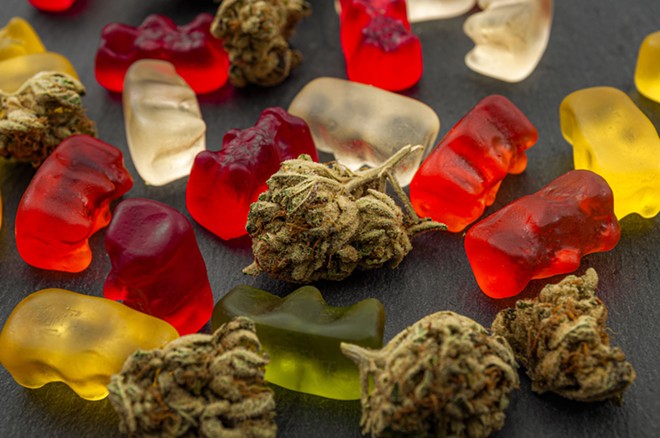Gummies, cookies and lollipops are among the pot-infused treats available to cannabis patients and recreational users in other states.
But more than two years after Florida lawmakers authorized medical marijuana edibles, health officials this week set in motion the state’s first effort at putting the munchies on the shelf.
The Department of Health announced the development of regulations for what will and won’t be allowed, but no details have been released.
That means it will be a while before Sunshine State patients will be able to grab long sought-after items —- such as “Mango Maui Wowie Fruit Leather,” “Reef Jerky,” and “Space Brownies” —- which are fan favorites elsewhere.
Edibles were also included in a parade of horribles this week as the Florida House continued to talk about dangers of recreational marijuana.
The House Health Quality Subcommittee’s Wednesday presentation was the chamber’s latest effort to build opposition to a proposed constitutional amendment that would legalize recreational marijuana for adults.
The House’s focus on the “Make It Legal Florida” initiative, which backers hope to put on the November 2020 ballot, comes amid a financial upheaval in the state’s medical marijuana industry.
Investors stampeded into Florida not long ago in a “green rush” to capitalize on what was expected to be one of the nation’s most lucrative marijuana markets.
The competition swelled after Florida voters broadly legalized medical marijuana in 2016. But even as the possibility of legal recreational pot looms, the bidding war for medical-marijuana licenses in the Sunshine State has fizzled, due to factors inside and outside of Florida.
In other pot news, the state’s largest medical marijuana operator was slapped with a federal lawsuit challenging its use of text-messages to alert customers about special deals.
The lawsuit alleges that Quincy-based Trulieve Inc. violated federal communications laws by sending unsolicited text messages advertising deals on marijuana products to a Tennessee man.
The damages, “when aggregated among a proposed class numbering in the tens of thousands, or more,” exceed a $5 million threshold for federal jurisdiction in class-action lawsuits, the lawsuit said.
Meanwhile, Gov. Ron DeSantis’ administration is calling a Tampa company’s effort to get a medical marijuana license a “stunt” that could “radically” upend the state’s cannabis industry.
DeSantis’ administration is asking the Florida Supreme Court to reject an appeals court ruling. Justices will weigh whether Florida’s “vertical integration” system requiring marijuana operators to grow, process and distribute cannabis and derivative products runs afoul of the 2016 constitutional amendment that broadly legalized medical marijuana, as a circuit judge and an appeals-court panel have found.
Critics of vertical integration contend that it shuts out firms that could perform individual aspects of the marijuana business.
Lawmakers, however, aren’t expected to address the vertical integration system during the upcoming legislative session, according to Senate President Bill Galvano, R-Bradenton.
“It’s more of a judicial issue right now,” Galvano told The News Service of Florida during a pre-session interview on Thursday.
But the Legislature still may tackle the sticky issue of how high Florida patients can get, by limiting the levels of euphoria-inducing THC in medical marijuana products.
“I haven’t seen yet an attempt to rework the vertical integration, but the issue of medical marijuana may still very well come up in terms of THC and capping THC, and that’s something that I would entertain,” Galvano said.
Stay on top of Orlando news and views. Sign up for our weekly Headlines newsletter.



